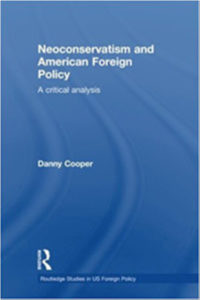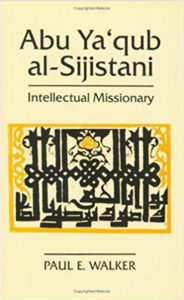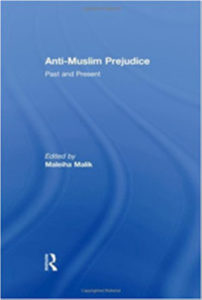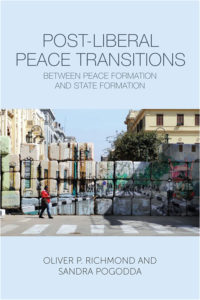
Neoconservatism and American Foreign Policy: A Critical Analysis
Danny Cooper
Routledge (2012)
Rs12,292
At the time of America’s 2003 invasion of Iraq, the term “neoconservative” was enjoying wide currency. To this day, it remains a term that engenders much debate and visceral reaction. The purpose of this book is to critically engage with a set of ideas and beliefs that define the neoconservative approach to American foreign policy, and illuminate many of the core foreign policy debates that have taken place within the United States over the past several years during the administrations of both George W. Bush and Barack Obama.
There is certainly no consensus on how neoconservatism should be defined or thought about. While authors attempt to define neoconservatism in a number of different ways, none adopt a thematic approach that can enable readers to appreciate the contributions of an intellectual community whose ideas will be forever attached to America’s decision to go to war against Iraq. This book, therefore, defines neoconservatism through the ideas and beliefs of its leading intellectual activists, casting light on the worldview of one of America’s most important and polarizing intellectual communities.
Exploring the historical significance of this ongoing movement and its impact on American foreign policy traditions, this work provides a significant contribution to the literature and will be of great interest to all scholars of foreign policy, American politics and American history.
Danny Cooper is a lecturer at Griffith University in Brisbane, Australia. His research interests include US foreign policy, international relations, and political leadership, this is his first book.

Abu Ya’qub Al-Sijistani: Intellectual Missionary
Paul E. Walker
I.B.Tauris (1998)
Rs5,496
Paul E. Walker looks at this important missionary of the tenth century from a fresh perspective. Though long neglected by historians of Islamic philosophy, al-Sijistani’s recently recovered writings establish him both as a philosopher and as an exponent of the intellectual understanding of Islam. The old problem of the meaning of science and religion and their interaction as reflected in the thought of an Ismaili author from the early Islamic period is now interpreted within the framework that brings together ideas and obscure doctrines surviving only piecemeal from medieval Arabic books and treatises. This book provides a coherent overview of al-Sijistani’s contributions as a thinker.
Paul E. Walker is Deputy Director for Academic Programs, Center for Middle Eastern Studies at the University of Chicago and a historian of ideas specializing in medieval Islamic history.

Anti-Muslim prejudice in the West, past and present: an introduction
Maleiha Malik
Routledge (2010)
Rs12,292
This collection makes a unique contribution to the study of anti-Muslim prejudice by placing the issue in both its past and present context. The essays cover historical and contemporary subjects from the eleventh century to the present day. They examine the forms that anti-Muslim prejudice takes, the historical influences on these forms, and how they relate to other forms of prejudice such as racism, anti-semitism or sexism, and indeed how anti-Muslim prejudice becomes institutionalized.
This volume looks at anti-Muslim prejudice from a wide range of disciplinary perspectives, including politics, sociology, philosophy, history, international relations, law, cultural studies and comparative literature. The essays contribute to our understanding of the different levels at which anti-Muslim prejudice emerges and operates – the local, the national and the transnational – by also including case studies from a range of contexts including Britain, Europe and the US.
This book contributes to a deeper understanding of contemporary political problems and controversial topics, such as issues that focus on Muslim women: the ‘headscarf’ debates, honour killings and forced marriages. There is also analysis of media bias in the representation of Muslims and Islam, and other urgent social and political issues such as the social exclusion of European Muslims and the political mobilisation against Islam by far-right parties.
This book was published as a special issue of Patterns of Prejudice.
Maleiha Malik is Reader in Law at the School of Law, King’s College, University of London.
Strategic Culture, Securitisation and the Use of Force: Post-9/11 Security Practices of Liberal Democracies
Wilhelm Mirow
Routledge (2016)
Rs16,489
This book investigates, and explains, the extent to which different liberal democracies have resorted to the use of force since the 9/11 terrorist attacks.
The responses of democratic states throughout the world to the September 2001 terrorist attacks have varied greatly. This book analyses the various factors that had an impact on decisions on the use of force by governments of liberal democratic states. It seeks to explain differences in the security policies and practices of Australia, Canada, France, Germany and the UK regarding the war in Afghanistan, domestic counterterrorism measures and the Iraq War. To this end, the book combines the concepts of strategic culture and securitisation into a theoretical model that disentangles the individual structural and agential causes of the use of force by the state and sequentially analyses the impact of each causal component on the other. It argues that the norms of a strategic culture shape securitisation processes of different expressions, which then bring about distinct modes of the use of force in individual security policy decisions. While governments can also deviate from the constraints of a strategic culture, this is likely to encounter a strong reaction from large parts of the population which in turn can lead to a long-term change in strategic culture.
This book will be of much interest to students of strategic culture, securitisation, European politics, security studies and IR in general.
Wilhlem Mirow has a PhD in International Relations, Center for Security Studies (CSS), Swiss Federal Institute of Technology (ETH) Zurich.
Ecstasy and Enlightenment: The Ismaili Devotional Literature of South Asia
Ali S. Asani, Ali Sultaan Asani
I.B.Tauris
Rs4,657
The devotional and mystical literature of the Ismailis in the Indo-Pakistan subcontinent is a little known but rich seam of creativity in the cultural heritage of Islam. The book focuses on the Ginans, a large corpus of hymns and poems composed in a variety of Indic languages and attributed to a series of preacher-saints who propagated the Ismaili form of Islam in the subcontinent over several centuries.
Ali S. Asani is Professor of the Practice of Indo-Muslim Languages and Cultures at Harvard University.

Post-liberal Peace Transitions: Between Peace Formation and State Formation
Oliver P. Richmond, Sandra Pogodda
Edinburgh University Press (2018)
Rs12,825
Why is it that states emerging from intervention, peacebuilding and statebuilding over the last 25 years appear to be ‘failed by design’? This study explores the interplay of local peace agency with the (neo)liberal peacebuilding project. And it looks at how far can local ‘peace formation’ dynamics can go to counteract the forces of violence and play a role in rebuilding the state, consolidate peace processes and induce a more progressive form of politics.
By looking at local agency related to peace formation, Oliver Richmond and Sandra Pogodda find answers to the pressing question of how large-scale peacebuilding or statebuilding may be significantly improved and made more representative of the lives, needs, rights, and ambitions of its subjects.
Key Features include comparative case studies, based on wide-ranging fieldwork, look at Afghanistan, Bosnia and Herzegovina, Cambodia, Cyprus, East Timor (Timor-Leste), Israel-Palestine, Kosovo, Northern Ireland, Sierra Leone and the Solomon Islands. The book takes an innovative theoretical approach, engaging with local and contextual forms of peacebuilding agency and including local authors. It continues the project begun in Oliver Richmond’s 2009 book Liberal Peace Transitions.
Oliver P. Richmond is Research Professor of IR, Peace and Conflict Studies at the Humanitarian and Conflict Response Institute & Department of Politics Ellen Wilkinson Building, The University of Manchester. His recent publications include Peace in IR (Routledge, 2008), Challenges to Peacebuilding: Managing Spoilers During Conflict Resolution (co-edited with Edward Newman) (UNU Press, 2006), and The Transformation of Peace (Palgrave, 2005).
Sandra Pogodda is Lecturer in Peace and Conflict Studies at the University of Manchester.

